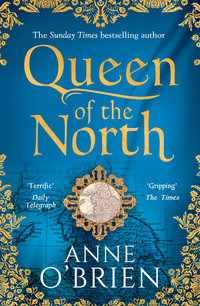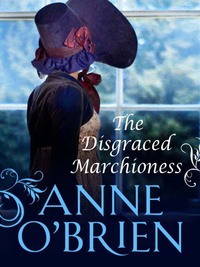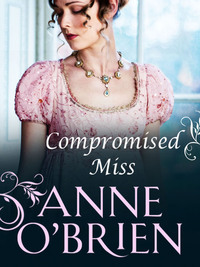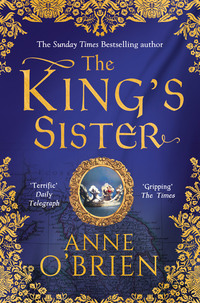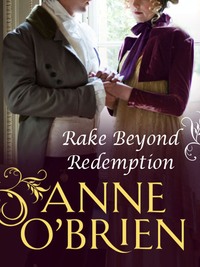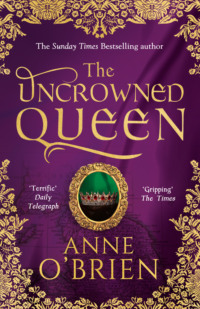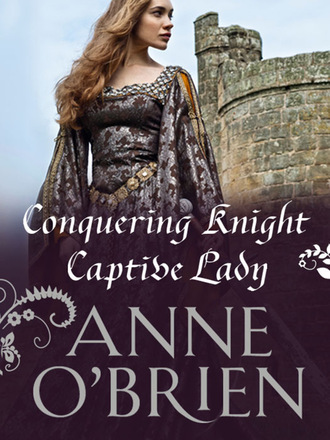
Полная версия
Conquering Knight, Captive Lady
As he left the audience chamber, failure rampaging through his blood, he had found himself standing close to her. She must have used lavender to wash her hair—the scent wound though his senses as she took a step back. And he had remembered, almost before it was too late, the courtesy with which he had been raised, and, digging deep through the fury, had enough nobility to make his farewell to her. He had kissed her hand. Why could he still experience that one moment with such amazing clarity? How the light texture of her fingers had for the briefest of moments cut through the anger in his head. Cool, smooth. Delicious skin like silk against his mouth. There had been that astonishing urge to kiss more.
Gervase deliberately pushed aside such unbidden thoughts with a grimace, clenching his jaw against the discomfort of his body’s response. He did not want her then, nor did he now. The erection that strained for release was merely a symptom of lack of female company in recent months. Easily remedied.
Besides, the de Longspey incident was all in the past. He could not even recall the girl’s name. Gervase shifted warily in the saddle. So why had he remembered her at all?
Chapter Three
Rosamund de Longspey had put her plan into immediate operation. A proposed visit to the fair in Salisbury, with a wagon to bring home any goods, two manservants, two armed guards and Edith, her mother’s maidservant, had become a headlong flight to Clifford without Earl Gilbert being the wiser until it was too late. They spent the first night in their new home wrapped in their cloaks in one of the unfurnished chambers in the west tower. The lord’s chamber would require much work to make it habitable. Nor would they trust any of the filthy quilts or covers to be had in the castle. So the night was a cold and sleepless one. The bread when she broke her fast was hard and unpalatable. Rosamund was thus in an ill-tempered mood when, on hearing a commotion in the bailey, she emerged to discover her gates open and an unknown knight with a force of soldiers in process of taking control of her castle from under her very nose.
‘Stop! What in God’s name are you doing …? You have no right …’
‘Might is right, Lady.’ The sword in the knight’s determined grip caught the weak rays of the sun, glittering along its honed edge. The tip of it hovered over the very centre of her breast, although he did not allow it to quite rest there. His feral grin was as arresting as the lethal weapon. ‘As of this moment, with this sword in my hand, I hold the power here. You do not.’
Rosamund froze on the spot. Suddenly, without warning, the point of the sword fell. Thank God! But Rosamund’s relief was short lived when the knight took a stride forward to close the space between them. Before she could retreat, she found herself caught within his arm, tightly banding around her waist. For that one breathless moment she feared for her safety and her honour. Then, to her amazement, the fear disappeared. His arms might pinion her to the length of his body, but they held her safe, secure against unnamed dangers. Barely able to catch a breath, her heart leaping in her breast.
Then as reality struck home and she raised her fists against his chest. But, furiously struggling, she made no impact at all on that solid wall of muscle. Rosamund looked up into his face, fighting now against a tingle of fear, of desperation. To see those cold grey eyes looking down into hers with what she could only interpret as hatred.
Would he assault her? Dishonour her? Who had not heard tales of such fiendish attacks, where no woman from the lowliest of servants to the lady herself was safe from rape and brutal treatment? Is that what he intended, here in full view of every man and woman in the castle? The threat of such humiliation iced her blood.
‘Let go of me,’ she demanded, hammering at his impervious chest with her fists.
‘I would be delighted to,’ he snarled.
Except that his grip tightened further, lifting her off her feet. Forced to grasp his shoulders for balance, Rosamund cried out in fear.
‘Don’t squawk in my ear, woman.’ Suddenly, with a tightening of the muscles in his back and thighs, he was lifting her higher to spin her aside. ‘It would solve my problem immediately if you were run down by one of my out-of-control baggage wagons, of course. But your brother the Earl might take it amiss. I don’t want him descending on me with an avenging army any time soon.’
Unnoticed in the mass of people and animals, one of the baggage wagons, clumsily manoeuvred, had creaked dangerously close, its burden of packages and barrels leaning precariously. As she glanced round, the wheel brushed against her skirts. If she had remained where she had been, she could well have been crushed under its weight.
The knight waited until the horses harnessed to the wagon had been led to safety, then, as soon as she was out of its range, he released her abruptly, letting her drop to her feet with a sardonic appreciation of her ruffled state. ‘There, lady. You’re safe to continue your objections if you so wish. Though I warn you, they’ll do no good.’
Perhaps not, but Rosamund could not—would not!—simply accept this turn in her fortunes. ‘But this is my inheritance, my dower.’ She fought her way through her scrambled thoughts. ‘Clifford is within the gift of the Earl of Salisbury—and now it is mine.’
‘Only by default, lady.’ The knight who had announced himself to be simply Fitz Osbern turned his attention to instructing his squire to supervise the unloading of the baggage wagons, bulging with supplies from Hereford. ‘Clifford was given to my ancestor by the Conqueror for services rendered. It was stolen from my father by the late Earl William. By the letter of the law it belongs to the Fitz Osberns—and now Clifford at least has returned to its rightful owner.’ He shouted an order to his sergeant-at-arms. ‘All I have to do is reclaim Ewyas Harold and Wigmore. A small force has been sent to each.’
‘Reclaim? But they are mine too.’ Rosamund could feel panic building again, layer upon layer, straining to escape her control.
‘Then it will not be a difficult task for me, will it? My men are in possession, as you can see, so there is nothing further to discuss. Now, if you would take yourself off to your chamber until I have time to deal with you …’ He sheathed the sword, a harsh rasp, and cast an experienced eye over the disposition of his troops.
Rosamund simply stared at him in stark amazement, fury replacing her fear. He had simply dismissed her as of no account. Take yourself off out of my way! is what he clearly meant! She narrowed her eyes to assess him as he stood in her courtyard, ownership written all over his straight shoulders and raised chin, taking stock of her castle. And what she saw did not please her at all. A bloodthirsty ruffian, was her first impression. He was not a man used to argument or his will being questioned, that much was clear. His eyes were a cold grey, dark and stormy, reflecting the colour of the winter river that flowed past their gates. Crow black and untidy, his hair was ruffled into thick waves by the chill wind, sweat-matted from the close confines of the Phrygian cap that he had pulled off and tucked in his belt, and his cheeks shadowed by any number of days’ growth of beard. His tunic and hose, his knee-length boots, were much as his cloak, wet and mud splattered. Filthy, she decided with distaste and a little sniff, refusing to take into account the state of the mired roads. But what did she expect? Cultured elegance? Fine courtly manners? Not from this man!
Rosamund frowned. As the knight moved, she noticed he favoured his right leg, a slight limp. Probably acquired in a tavern brawl or a drunken disagreement over dice. He was nothing but a mercenary, a robber baron, and not a moment ago she had been dragged into his arms, held hard against his chest. Disgust filled her, not least at her reaction to him. She could not find this man attractive! Her intense annoyance coloured her next words when she saw that he was quite prepared to dismiss her like a servant and leave her standing there in the mud of her own bailey.
‘How dare you take what is mine! You’re nothing but an uncivilised lout!’
Which got his attention well enough. Emotion flashed across his face. With shocked fascination she saw the slash of colour along the high cheekbones as he looked down at his tormentor, a particularly cold stare. For a long moment he contemplated her in silence, allowing Rosamund the opportunity to chide herself. What a time to make so unwise an attack. Then, when the weight in her chest had grown to major proportions, he grinned and sketched a mocking bow, strangely at odds with the mud and grime. The smile was not friendly. His eyes and his words froze the marrow of her bones.
‘In the circumstances, lady, you should be praying that you are wrong in your estimation of my appearance and character. If I was an uncivilised lout, I would have designs on your person as well as your castle.’ He took a stride forward. To her dismay Rosamund took one in retreat, but Fitz Osbern did not halt. Instead he stepped intimidatingly close. Rosamund, disconcerted, found herself lifting a hand to smack it firmly in self-protection against his chest. And drew in a sharp breath.
It burned. She could feel the heat of him, as she had before, as it crept from that inadvertent touch of her spread fingers to engulf her whole body. And not merely a physical warmth. Her heart seemed to swell with it, filling her breast so that her breathing shortened. Her belly shivered with nerves. Every inch of her skin seemed suddenly to be conscious of his looming presence. He might not be touching her, but she felt the hot slide of his glance over her flesh. Aghast, Rosamund swallowed against the dryness in her throat. She could feel the flame of it in her cheeks, and cursed her pale complexion that mirrored every thought. Could think of nothing to say, could only stare at him wide-eyed as his heart beat steadily beneath her palm.
Then, to her relief, the knight stepped back.
‘I assure you, I have no designs on your person,’ he growled. The grin widened to show even teeth. Wolfishly, she considered. ‘As for yourself, lady, you are remarkably proud and haughty, considering that you are entirely at my mercy.’
Flushing again, vividly to the roots of her hair, Rosamund found her voice. ‘At your mercy? I am no such thing!’
‘No? I don’t suggest that you challenge me on that point.’ He looked her up and down as if about to say more, changed his mind. ‘Enough of this. I have things to do here, lady. We’ll discuss this … this little difficulty … over dinner at mid-day. If nothing else, we must arrange for your transportation elsewhere. So if you would be so good as to order the provision of hot food for my men with my steward, and for ourselves …’
Without a backward glance, Fitz Osbern strode off toward the stables, leaving her standing. My steward! Her clear brow furrowed into a scowl, her hands tightened into fists. She would have tapped her foot if her shoe had not been firmly anchored in the mud. Order the food! As if I were a servant at his beck and call! Stalking past her mother without a word, she climbed the stairs into the hall, head high, realising that she had no choice, that she would get nowhere with this situation until they faced each other again and hammered out the legalities. She refused to chase after him to demand his attention. So she would organise the meal. Present him with the documents of her legal ownership. And then force him to leave. Although how she would achieve such a conclusion she had no very clear idea. Whatever she had or had not learned about him in that short confrontation, he was not a man open to persuasion.
But that was not all she had learnt. And it was equally unacceptable. Rosamund found herself wiping her damp palm down her skirts. His touch still burned there.
Lady Petronilla remained standing at the foot of the staircase, a fascinated witness to the little scene, an avid spectator of a clash of wills that could not but fill her with anxieties for the future. She might have been unable to hear all the words spoken, except when Rosamund raised her voice beyond what was seemly to call the knight an uncivilised lout—perhaps not the best thing to do on first acquaintance—but the tone of the whole exchange had been abundantly clear. Sometimes Rose was too much her father’s daughter for everyone’s comfort. And now what? The Fitz Osbern men were quite incontrovertibly in control, occupying the gatehouse and the towers of the central court, their equipment stowed and their horses occupying the stables. Petronilla slid a glance over to where the elder of the two knights still stood where he had remained throughout, at his horse’s head, hands clasped on his sword belt as he watched the proceedings with an undisguised appreciation. Now, sensing her interest, he looked across at her, his smile gaining a rueful quality. For some reason his quiet confidence, his tolerant smile and the gleam in his eye as it met hers across the width of the bailey brought a warmth to her face. She felt his sympathy, his quick understanding of the uncomfortable position that she had been thrown into, and it irritated her beyond bearing. She felt an urge to wipe the smile from his face. Before common sense could step in, she stalked across to his side.
‘I don’t know what you found to be so amusing in that little interlude,’ she remarked with stern censure. Had she known it, the lift of her chin was very like that of her daughter. ‘You should be ashamed of yourself!’
‘What?’ The smile duly vanished, the knight’s rough brows snapped together. ‘What did I do?’
‘Nothing! That’s the thing!’
Like her daughter, she turned on her heel and left him to mull over the enigmatic words as he wished, whilst Lady Petronilla wondered at her response to the knight and her temerity at castigating him for no reason at all.
Rosamund paced in the Great Hall—her Great Hall—her thoughts in confusion. As if her arrival at Clifford on the previous day had not been bad enough, with all its shocking revelation. As if the decisions she had been forced to make had not taken all her courage. And now this débâcle—this monstrous turn of events. From the moment when she had at set foot in the small settlement of some twenty timber-and-thatch houses on the bank of the Wye where the river could be forded with relative ease, everything seemed destined to go wrong. She had simply sat and looked in horrified awe at the central keep of Clifford, recently rebuilt in local stone, her inheritance and her chosen home. It was grey and entirely forbidding.
‘It’s not exactly welcoming, is it?’ Lady Petronilla, lips pressed into a straight line to prevent an exclamation of sheer horror, sat in the bailey of Clifford Castle and viewed the near prospect from the safe advantage of her mare’s back. Her hands clutched around the reins at what she saw.
‘God’s bones!’ Less restrained, Rosamund’s first impression of her new home was dire. Was this—this hellish outpost on the very edge of what she considered to be civilisation—to be her home?
‘Don’t blaspheme, Rosamund.’ But the Countess’s tone was mild. ‘It’s not as bad as all that.’ A rat scurried across their path, larger than most cats. ‘Or perhaps it is.’
Due to the striking de Longspey pennons in black and red, flaunted by their escort, the castle gates had been opened for them without question. The commander of the garrison, an elderly knight of lined and mournful visage named Thomas de Byton, stood elbows akimbo on the steps leading up to the entrance to the keep, sour and unaccommodating. He made no advance to acknowledge or receive the women who had turned up unwanted and uninvited on his threshold, but watched them with what Rosamund could only interpret as a jaundiced air. She could read his disapproval in his stance. Awaited his approach. When he made no move, she nudged her horse forward until she sat before him, her eyes on a level with his, as she had intended, and very direct.
‘Thomas de Byton.’ Her voice was clear, carried well. She had made it her business to discover the name of the man who held Clifford in her name, the protection of her property. ‘I am Rosamund de Longspey.’
‘Aye, my lady. I heard the Earl had given the castle to a woman.’
She ignored his words but, eyes widened, continued to hold his. ‘Perhaps you will make arrangements for the accommodation of my escort and for myself and the Dowager Countess.’
‘And for how long would that be, my lady?’
She lifted her chin an inch, stared down her nose. ‘For as long as I see fit. I intend to make my home here.’
‘As you wish, my lady.’ Sir Thomas turned, to stamp back up the steps, in no way discommoded by the interview.
‘One moment, Sir Thomas. If you please.’
He halted, half-turned, but did not retrace his steps.
‘If you would see to my horses and my baggage, I wish to inspect the private quarters.’
‘As you wish, my lady.’ With bad grace, he marched back down the steps and across the bailey to the thatch-and-timber constructions that housed the kitchens, resentment hovering round him like a swarm of flies in summer. She heard his muttered parting shot.
‘Let me know when you decide you don’t wish to stay, my lady.’
But she would stay. She must. The new Lady of Clifford braced for what was to come.
‘Well, it could be worse. Some improvements have been made.’ Petronilla surveyed the stone walls rising on every side to create an inner court.
‘I fail to see them,’ Rosamund lifted one soft leather boot to inspect the mud caked almost to the ankle. This inner courtyard enclosed within the defences of the stone keep was badly drained and awash with standing water. The walls were high, hemming them in, cutting off the light. The air was dank and chill and would be so, she suspected, even on the warmest of summer days. She shivered within her mantle. ‘It’s like being enclosed in a stone tomb.’
‘At least you have the comfort of a stone hall. Timber lets in the draughts so,’ Petronilla continued, trying to make the best of it. They looked around them at the five towers and the three-storied Hall, all connected by a strong defensive wall, a battlement walk around the top. ‘And our safety here is guaranteed, even if the outer bailey falls to an attack.’
‘Do you say?’ Rosamund poked at some decaying mortar between the stonework. ‘I think we should look at the rest before we go in.’ She followed Sir Thomas’s distant figure down into the bailey.
It did not take long. Rosamund’s sense of disgust deepened with every step. Other than the gatehouse and the keep, both of stone and substantial enough, the rest of the fortification was still the original timber palisade with an outer earth bank and ditch. The buildings in the outer bailey were timber and thatch—stables, kitchens, store rooms, as well as shelters for the scattering of cows and sheep that roamed and mired up the surface. She stepped cautiously around the animals. Should they not be fenced in somewhere? Chickens sat broodily along one roof ridge. In the corner beside the keep, easily recognisable by the rank smell, a midden spread its foul contents underfoot. Her nose wrinkling, Rosamund quickly put distance between herself and the offending heap. Who could have allowed the midden to be positioned there, so close to the habitation?
‘It could be worse,’ the Dowager gulped, as if repeating the words would make them so. ‘You’ve a secure water supply from the well.’
‘So I have.’ Rosamund suddenly smiled wryly at her mother, struck by the sheer awfulness of it all. ‘Stop being so cheerful!’ But this is where she must stay. ‘Let’s go in. You notice that our commander and my invisible steward—if I have one—are both keeping a low profile. I think it bodes ill.’
It did. The sight and the stench reduced the de Longspey women to a silence.
‘Oh, dear!’ Lady Petronilla managed at last.
The Hall showed evidence of hard and crowded living, being the nightly refuge of Sir Thomas’s men-at-arms. Dark in the most sun-filled of days, rank with smoke from the open fire that did not find the intended outlets in the thickness of the wall and with the rancid reek of animal fat feeding the rush lights, it was a scene from a church wall-painting of Hell, to frighten the sinful into a better life on earth.
‘These rushes have not been changed since last winter.’ In awe of such filth, Rosamund tried not to disturb them too much as she walked in, flinching from the fleas and vermin that would infest them. Any sweet scent had long gone, replaced by the stench from putrid scraps of food and worse from the savaging hounds that drew back snarling as she approached. Over all, the whole place reeked of unwashed humanity.
The furniture was minimal, splattered and scarred. A few benches and stools stood by the hearth. The single standing table on the dais had seen better days. There were no tapestries to decorate the walls. Indeed, it would have been a shame to hang them where their beauty would have been spoiled. The stonework ran with wet and soot from the fire.
‘So what about the private chambers?’ Rosamund started up the stairs to the next floor. ‘For where shall we sleep tonight?’
‘Not in here!’ Lady Petronilla lifted the hem of her skirts from the outrage.
The solar, intended as a comfortable refuge for the women of the household, contained nothing but evidence of soldiers sleeping there—a discarded boot and assorted pieces of raiment, jugs of ale, remnants of ruined food. Equally, the adjoining private chamber intended to heighten the authority of the lord and his lady had been taken over, Rosamund presumed, as the haunt of Thomas de Byton, and he had done nothing to remove his presence from it.
‘By the Virgin!’ Rosamund kicked over a pile of questionable material beside what should have been an impressive oak bedstead, then retreated from platters of food with their layers of fuzzy mould. The smell that hit them at the door heralded the existence of the garderobe, built into the thickness of the wall to empty into the ditch below. It was altogether an appalling place.
Rosamund decided not to investigate further. ‘I doubt this has ever been cleaned out since the stone keep was first constructed. It’s hard to believe that Ralph de Morgan would want it.’ She veiled her thoughts with dark lashes from her percipient mother, not liking their direction, unable to dispel the sharp bitterness that settled beneath her breast-bone. ‘As a dower it does not recommend me highly to a husband, does it? And yet Ralph de Morgan would take me, to acquire this. Simply because it controls the crossing of the Wye. The cow byres in Salisbury are better kept than this! Yet it was thought to be a suitable dower for me.’ She heard her voice rise, and strove without success to control the bleak vision of her future here. ‘Perhaps at my advanced age Ralph is the best I can hope for. I clearly have no great value in de Longspey eyes, except to entice a border lord into their clutches.’
‘Foolish girl! How could you think that you have no value! Believe me, Rose, this place will look far better after a good scrub!’ Petronilla managed a semblance of a smile as Edith called on the Virgin to give them succour. Only too well aware of the probable live occupants of the mattress, they made a discreet exit from the chamber. The fleas and bugs might be invisible, but the mice and rats were not. Nor the enormous spiders that had spun cobwebs over every corner.
‘I can think it well enough. Consider this. Earl William and Gilbert thought to attract a husband for me by using this … this midden as a dower. What value does that give me? What worth have I?’ But Rosamund squared her shoulders against the hurt. She would not let it crush her spirits. She could at least pretend that the pain of humiliation in her chest did not exist. ‘Perhaps the storerooms will give me hope.’
They did not. A cursory inspection suggested that Rosamund de Longspey owned nothing but a serious quantity of barrels of ale. A sad fact confirmed by the mid-day meal, served by an ill-washed kitchen boy in the squalor of the Great Hall. The array of dishes comprised, apart from the ale, nothing more than a thick mutton broth, a platter of boiled onions and coarse flat-bread, burnt at the sides.


